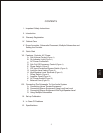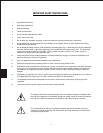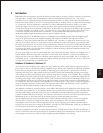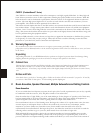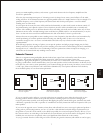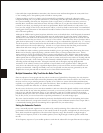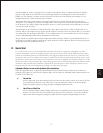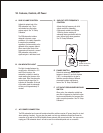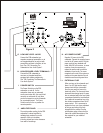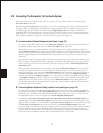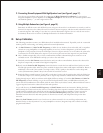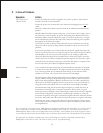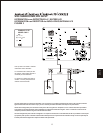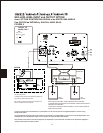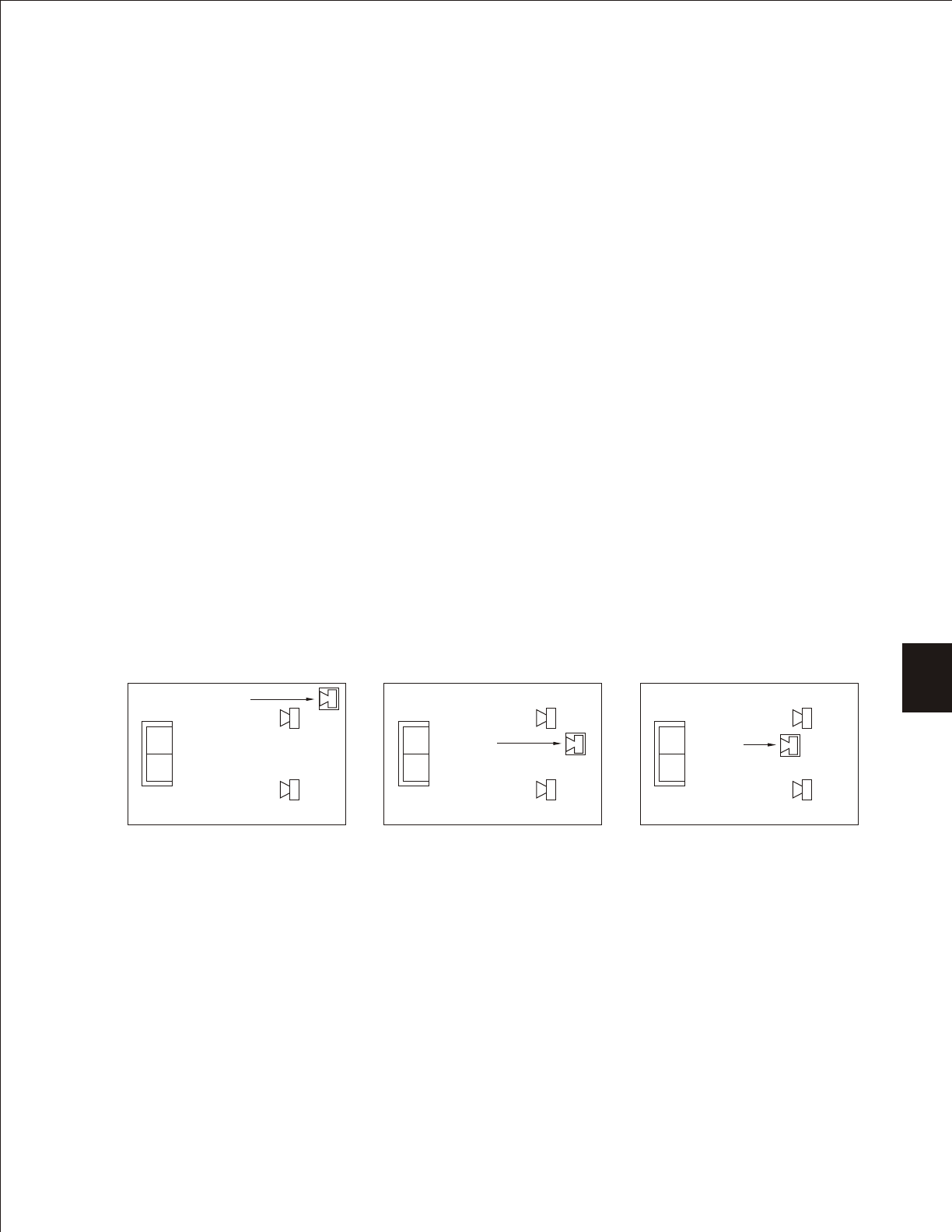
power your main amplifier produces, and ensures a good match between the low-frequency amplifier and the
woofer it is paired with.
After size, the most important aspect of a listening room is its shape. In any room, sound reflects off the walls,
ceiling, and floor. If the distance between two opposite parallel surfaces is a simple fraction of the wavelength of a
particular frequency, notes of that frequency will bounce back and forth in perfect phase—an effect called a
standing wave or room mode.
At some point in the room, this note will be reinforced substantially; at others it will cancel out almost entirely. If
the prime listening seat is placed at either of these locations, the note will be a horrible boom or virtually non-
existent. The standing waves are different between floor and ceiling, side walls, and end walls, unless any of these
dimensions are the same. An ideal listening room would have no parallel surfaces—an unusual situation, to say the
least—so that such waves would not establish themselves. The worst kind of room is a perfect cube.
Almost all rooms are susceptible to some standing waves at low frequencies, but their effects can be minimized by
careful positioning of both the speakers and the listening seat. Moving either of these even a few inches is
sometimes enough to cure—or create—an intolerable sound. The only way to find out what works best is by
experimentation.
With full-range speakers, the range of places you can put the speakers and still get proper imaging may be fairly
limited, and some of these positions may result in standing waves that can't be tamed. Things are more controllable
through the use of a subwoofer or two. Positioning of the bass speakers has almost no impact on imaging, so a
subwoofer can be located with only standing waves in mind
Subwoofer Placement
There is no argument among audiophiles that the loudest bass output from a subwoofer comes from corner
placement. The natural megaphone-like flaring outward of walls from a room corner focuses low
frequencies—giving them no place to go but toward you. In the case of subwoofers, there is no automatic penalty
in giving overall balance for this maximal bass, since your main speakers can be located elsewhere. It still may be too
much bass for your room or (more particularly) your favorite listening spot in the room, but unless you are seated in
a “null” spot, where sound from the sub is cancelled or diminished by out-of-phase reflections from elsewhere,
there should be plenty of bass from corner placement.
If you are seated in such a null spot, your only real choices are generally to move either the subwoofer or your
listening position until bass returns to the point that satisfies. Cranking up the level control or changing the
crossover point almost certainly won't help much. But flipping the phase control 180 degrees sometimes may make
a difference, especially if the null is a product of cancellations caused by interaction with low frequencies from your
main speakers.
If you are in the opposite sort of situation, where direct and reflected bass waves converge in phase and produce a
strong peak at your listening location, you can—if you like—deal with that both with changes in placement or in
the position of your sub's level control (or, less likely but possible, the crossover frequency chosen). We say “if you
like” because there is no such thing as too much bass for some listeners, and we don't want to be dogmatic. You are
definitely the one who has to be pleased, unless your Significant Other chimes in to the contrary.
As you go outward from the corner along one wall or another, the general consensus (with which we tend to agree)
7
PSB Subwoofer
PSB
Subwoofer
PSB
Subwoofer
Most bass output; least
even bass response
Moderate bass output;
more even bass response
Lowest bass output;
most even bass response
ENGENG





